
lentus25/iStock/Getty Images
Approximately 4 of every 10 teenagers suffer from acne or acne scarring, the American Academy of Dermatology reports, and many adults continue to experience acne well into their 20s and beyond. Nutrition may play a role in the prevention and treatment of acne in certain people. An orange is one healthy food that isn't likely to cause acne and may actually reduce its incidence.
Background
Acne is a skin condition that disproportionally afflicts people living in industrialized societies, according to the August 2011 edition of the "Cutis." In this review, the authors note that diet is a primary cause of acne in many Western countries. A diet low in antioxidants, rich in dairy products and high in fast-digesting carbohydrates all contribute to the development of acne.
Vitamin C
In Loren Cordain's book, "The Dietary Cure for Acne," the Colorado State University nutrition professor notes that excess activity of free radicals -- deformed molecules that attack normal cells -- on the skin can contribute to the formation of acne. He adds that consuming adequate amounts of antioxidants is important to reduce the presence of free radicals on the skin. Oranges are one of the most abundant sources of vitamin C -- a potent antioxidant. A single orange provides you with more than 100 percent of your recommended dietary allowance for vitamin C, the Office of Dietary Supplements reports.
Glycemic Load
Not all carbohydrates are digested at the same rate. The tool that scientists use to measure the speed that carbohydrates are digested -- the glycemic load -- may be important for acne. A research study published in the July 2007 "American Journal of Clinical Nutrition" discovered that switching a group of 40 acne sufferers to a low-glycemic-load diet reduced the incidence of acne by approximately 23 percent. Fresh oranges are a low-glycemic-load food, according to Harvard Medical School. However, orange juice has a glycemic load more than double that of fresh oranges and should be avoided.
Considerations
Like any disorder of the skin, you should seek out the advice of a trained dermatologist to help treat your acne. To date, no scientific studies have looked into the effect of oranges or any other single food on the development of acne. In addition to diet, you can reduce acne by limiting dairy intake, washing your face twice daily and avoiding the use of oily cosmetics.
Related Articles

Asian Secret to Removing Cellulite

Strawberries & Acne

Foods From Rainforest Plants

Can You Change Skin Tone with Food?
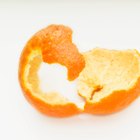
How to Eat an Orange Peel

Grapefruit Skin Benefits

Seaweed and Acne
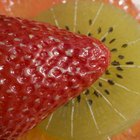
What Type of Sugar Is in Fruit?

What Vitamins Help the Liver?

Nutrition Information on Blueberries

Is an Orange Healthy to Eat for Your ...
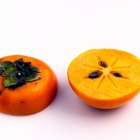
What Are the Benefits of Persimmons?

Low Carb Peanut Butter Snacks
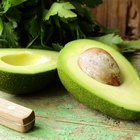
Fruits High in Zinc

Information About the Orange Fruit
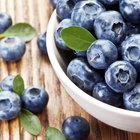
The Carbohydrates in Blueberries

Which Nuts Are Alkaline Forming?

Is Cranberry Juice Good for Acne?

Salt Water Taffy Nutritional Facts

How to Make a Yogurt Smoothie
References
- American Academy of Dermatology: Acne
- "The Dietary Cure For Acne"; Loren Cordain, Ph.D.; 2006
- Cutis: The Association of Acne Vulgaris with Diet
- Harvard Medical School: Glycemic Index and Glycemic Load for 100+ Foods
- Office of Dietary Supplements: Vitamin C
Writer Bio
Ryan Devon is a registered dietitian with a Master of Science in nutrition and health promotion from Simmons College. He starting writing in 2010, specializing in weight management and eating-disorder science.
Photo Credits
lentus25/iStock/Getty Images